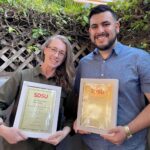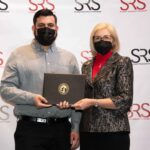
Nicolas Gutierrez III is a first-year Ph.D. student in the Sociology Department at the University of Southern California (USC). His research focuses on the criminalization of homelessness, the expansion of the police state, and community resistance to policing. He received his M.S. in Criminal Justice & Criminology from San Diego State University and B.A. in Criminology, Law and Society from the University of California, Irvine.
Nicolas has recently published in the International Journal on Homelessness (“Community Acceptance of, and Opposition to, Homeless-Serving Facilities”) and Public Integrity (“Black Lives Experiencing Homelessness Matter: A Critical Conceptual Framework for Understanding How Policing Drives System Avoidance among Vulnerable Populations”). His research has been covered by the Scholars Strategy Network, Voice of San Diego, CBS 8, NBC 7, and inewsource.
Nicolas is currently a USC Provost Fellow and W.E.B. DuBois & Ida B. Wells-Barnett Graduate Scholar. He has previously been named a CSU Sally Casanova Pre-Doctoral Scholar, UCLA Summer Research Fellow, and Public Administration Theory Network Fellow. He was also recognized as the 2021-22 Most Outstanding Master’s Student by the SDSU Criminal Justice & Criminology faculty.
Learn more about his work at www.nicolasgutierreziii.com
News
- HSS’ Nicolas Gutierrez III named 2022 PA Theory Network Fellow

- HSS’ Nicolas Gutierrez III and Megan Welsh Carroll recognized as top MCJC student and faculty

- Student Scholarship Shines at the 2022 Student Research Symposium (SDSU NewsCenter)

- HSS’ Nicolas Gutierrez III named CSU Sally Casanova Scholar (SDSU NewsCenter)





